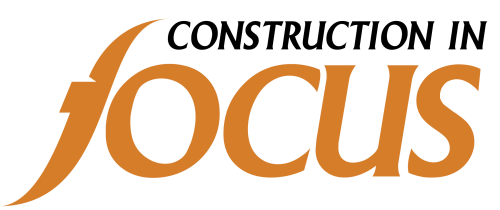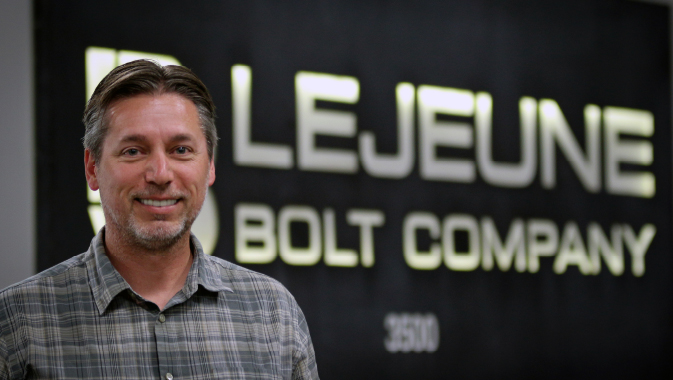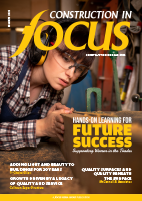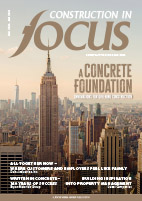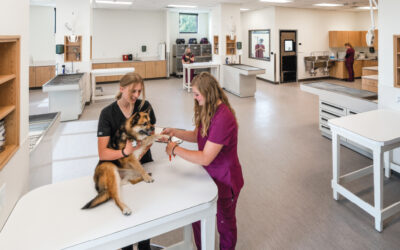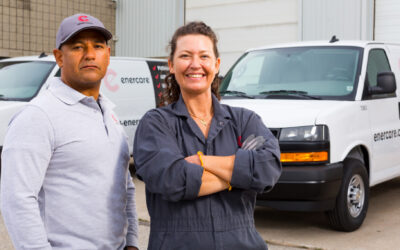LeJeune Bolt Company stands out as a structural fastener specialist and an expert source for installation tool sales, rentals and repairs in the U.S. construction industry. Despite its name, LeJeune Bolt Company is so much more than bolts; it is a supplier of structural fastening solutions and installation tools. It is also an industry pioneer that seeks new opportunities to innovate, while challenging standards to advance the industry as a whole.
~
The company’s approach to business has been the force behind its growth since its founding in 1976. LeJeune Bolt Company has come a long way from its beginnings at a small warehouse in Burnsville, Minnesota. The company’s reputation has grown as it has brought the best in quality and service to its diverse customers in the government, municipal, industrial and commercial markets.
Innovation is paramount to the company’s success. By using its extensive industry experience to develop new products and methods, it can better serve as a resource for the structural bolting industry.
“Our overarching theme here has always been about being technically sound, trying to be a resource for the marketplace. So, not only are we selling bolts, we are also providing technical insight and support for the projects and customers that we serve,” explained Vice President, Jeff Greene.
President Chad Larson is an active member of several industry organizations, such as ASTM International, American Institute of Steel Construction (AISC) and the Research Council on Structural Connection (RCSC).
These organizations play an important role in industry governance and the ratification of new industry standards. Through its active engagement, LeJeune Bolt Company is redefining the accepted standards and future of the structural bolting market by championing new industry standards.
“Construction is a funny industry. Structural bolting, in particular, is an industry that grew around what was available, and what was available became practical, and what was practical is what became standardized,” Larson said.
By understanding the industry’s problems, LeJeune Bolt Company created new products and methods that improved performance and then drafted standards around those innovations rather than simply relying on what was available.
Larson explained that industry standards are typically written around current limitations and regarding structural bolting, standards have been in existence since the 1950s and 1960s. Though they have changed slightly over the years, these changes have not had a dramatic effect.
“What is happening is, you are standardizing the limits of metallurgy, or you are standardizing the limitations of heat treatment, or you are standardizing the limitations of technology. And, while standards do a great job of getting everybody on the same page, they tend to hold everybody on that page for a very long time,” said Larson.
LeJeune Bolt Company is focused not only on advancing the company but also the industry and is doing what it can to hasten the cycle at which standards are updated to afford more opportunity for new technologies to emerge.
The company was founded for the sole purpose of bringing a new fastening system to market and was built around that system’s value and success. At the time of the company’s founding, that concept was the twist-off type bolt, for which LeJeune Bolt Company remains a reputable supplier.
“It used to be that you would have a select number of suppliers like LeJeune who you trusted to supply this relatively new technology. Today, you can go and buy that bolt from a thousand different places, anywhere around the country, but very few have the breadth and depth of inventory that we carry,” said Greene.
“We obviously supply many other types of product for the same industry, but that’s really what we’re known for. Along with that, we’ve always tried to innovate. We were among the first to do mechanical galvanizing as a coating on fasteners, for example. We’ve come up with some new lubricants and new technology for fasteners over the years,” noted Larson.
The twist-off type bolt is an AISC and RCSC approved installation method. Other LeJeune Bolt Company products include heavy hex bolts, mechanical anchors, chemical anchors, hardware, stud welding, threaded studs and a variety of installation tools. LeJeune Bolt Company is the largest supplier of TONE installation tools in North America.
Moving away from the twist-off type bolt as the industry’s default bolting system, is LeJeune Bolt Company’s most recent innovation, the Torque and Angle Fastening System. The impetus behind this revolutionary development was to control installation variables to simplify design and installation and improve connection quality while reducing total installed cost. Torque and Angle Technology enables this to happen in a safe, simple, cost effective manner.
The TNA® Fastening System is the first engineered structural fastening system to adequately address the shortcomings of existing fasteners, methods and equipment. To ensure consistent performance in all applications the TNA® bolts are only sold as matched assemblies.The TAE Series installation tools are the first to bring what is widely regarded as the most consistent installation method, Torque and Angle, to the North American construction market. In the snug mode the tool shuts off when it reaches a specific torque. Subsequently, a simple flip of the switch activates the elongation based angle mode for final tension.
It took LeJeune Bolt Company years of research, development and testing but it certainly paid off. In fact, the TNA® fastening system was selected as the winner of the Hot Product Award at the North American Construction Conference (NASCC) in St. Louis, Missouri.
“We’re being disruptive in our installation methods with this new product. We’re being disruptive in design in changing some of the conventions or the thoughts about how products are designed and used,” Larson explained. “We are trying to be disruptive but back it up with a product that is worthy of the commotion.”
Greene noted that the consumer goods sector is more willing to absorb the risk associated with being an early adopter, whereas the construction industry taking on the risk of a product or installation method that has yet to be proven is far less likely.
Change is never easy, especially in an industry that is governed by tradition. LeJeune Bolt Company now has the task of educating customers and the industry to the many advantages of this innovative sytem as it hopes to rewrite industry standards.
“Our project portfolio helps us prove the product. Honestly, that is one of our frustrations when we are selling something that we know is better. The entire system is designed around eliminating risk,” said Greene. LeJeune Bolt Company is doing everything that can be done to demonstrate the benefits of this product.
LeJeune Bolt Company serves customers nationwide, so as a strategic way to retain the company’s national presence and have a physical location on the west coast, it established an office in Los Angeles, CA. The West Coast market was becoming increasingly difficult to serve efficiently and in a tinmely manner from its Burnsville, Minnesota headquarters.
LeJeune Bolt Company identified an opportunity to build its L.A. office around industry-leading expertise. “The western regional manager out there has been in the industry for thirty-five years, and he became available, so we essentially built that office around him, because that was the critical piece, having someone who was an expert in the industry,” recalled Greene.
The knowledge base at LeJeune Bolt Company runs deep, with an average employee tenure of 20 years in the industry. Employees are credited with being responsive, passionate experts who offer customers multiple levels of technical support.
“We make a pretty significant commitment to service projects, to do all the training, to supply the product and do the follow up support, anywhere in the world we might sell,” stated Greene. “Every job should and could lead to another project, so we have to be perfect every time.”
Larson paid homage to the company’s staff and past leadership and their role in LeJeune Bolt Company’s growth and market success, citing a “great tradition of leadership and excellence which has carried over.”
“We have a pretty great responsibility to carry that tradition forward, to pass that along to the next generation. We take that very seriously,” Greene added. “It’s important that we all know where this company started and why, because moving forward, that is always going to be part of what we are doing.”
And what the company is doing is changing an established industry by creating new products and methods. By continuing to reinvent itself, LeJeune Bolt Company is primed for future success.
